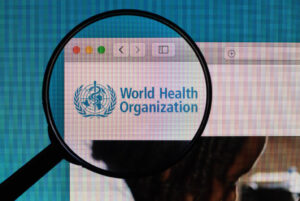Health Tips – In today’s fast-paced world, prioritizing our health is more important than ever. With busy schedules and endless distractions, it can be easy to neglect our well-being. However, incorporating simple yet effective health tips into our daily routine can make a significant difference in our overall quality of life. From nutrition and exercise to stress management and social connections, taking care of ourselves holistically is key to leading a fulfilling and vibrant life.
Health Tips / Health Tips / Health Tips
Healthy Eating Habits

Maintaining a balanced diet is essential for fueling our bodies with the nutrients they need to thrive. Incorporating plenty of fruits, vegetables, whole grains, and lean proteins into our meals can help ensure that we are getting the vitamins, minerals, and antioxidants necessary for good health. Additionally, staying hydrated by drinking plenty of water throughout the day is crucial for supporting digestion, circulation, and overall well-being.
Regular Exercise Routine
Regular physical activity is vital for maintaining a healthy weight, reducing the risk of chronic diseases, and boosting mood and energy levels. Finding ways to incorporate exercise into our daily routine, such as taking a brisk walk during lunch breaks or joining a fitness class after work, can help us stay active despite busy schedules. It’s also important to mix cardio exercises, like running or cycling, with strength training activities, such as weightlifting or yoga, for a well-rounded fitness regimen.
Adequate Sleep Patterns
Quality sleep is essential for allowing our bodies to rest, repair, and recharge. Establishing a consistent sleep schedule and creating a relaxing bedtime routine can help improve sleep quality and duration. Avoiding caffeine and electronics before bed, keeping the bedroom dark and quiet, and practicing relaxation techniques like deep breathing or meditation can also promote better sleep habits.
Stress Management Techniques
Chronic stress can take a toll on both our physical and mental health, leading to issues like high blood pressure, anxiety, and depression. Finding healthy ways to manage stress, such as exercise, meditation, or spending time in nature, can help reduce its impact on our overall well-being. Making time for activities we enjoy and learning to prioritize tasks can also help us feel more in control and less overwhelmed.
Routine Health Check-ups
Regular health check-ups and screenings are essential for detecting and preventing potential health issues before they become serious. Scheduling annual physicals, dental exams, and eye appointments, as well as staying up to date on vaccinations and screenings for conditions like cancer and heart disease, can help us stay proactive about our health and catch any problems early on.
Hygiene Practices
Maintaining good personal hygiene, such as washing hands regularly, showering daily, and brushing and flossing teeth twice a day, is crucial for preventing the spread of illness and infection. Additionally, keeping living and workspaces clean and sanitized can help reduce exposure to germs and pollutants, further supporting our overall health and well-being.
Mindfulness and Mental Well-being
Taking care of our mental health is just as important as caring for our physical health. Practicing mindfulness, or being present in the moment without judgment, can help reduce stress and anxiety and improve overall mental well-being. Simple mindfulness exercises, such as deep breathing, body scans, or mindful eating, can be incorporated into our daily routine to promote greater awareness and inner peace.
Limiting Alcohol and Tobacco Consumption
Excessive alcohol consumption and tobacco use can have detrimental effects on our health, increasing the risk of conditions like liver disease, heart disease, and cancer. Cutting back on alcohol consumption or quitting smoking altogether can significantly improve our health and quality of life. Seeking support from friends, family, or healthcare professionals can make the process easier and more successful.
Social Connections and Support
Maintaining strong social connections and a supportive network of friends and family is essential for our mental and emotional well-being. Spending time with loved ones, participating in group activities or clubs, and reaching out for support when needed can help us feel connected, valued, and supported, even during challenging times. Building and nurturing meaningful relationships is key to leading a fulfilling and satisfying life.
Healthy Aging
As we age, it becomes even more important to prioritize our health and well-being. Staying active, eating a balanced diet, getting regular exercise, and staying socially engaged can help us maintain our independence, vitality, and quality of life as we grow older. Additionally, staying up to date on preventive healthcare, managing chronic conditions, and staying mentally and emotionally resilient can help us age gracefully and with dignity.
Environmental Health
Creating a clean and safe environment in which to live, work, and play is crucial for supporting our overall health and well-being. Avoiding exposure to pollutants, toxins, and allergens, as well as practicing eco-friendly habits like recycling and conserving energy, can help reduce our risk of illness and disease. Taking care of the planet is not only good for the environment but also for our own health and the health of future generations.
Holistic Approaches to Health
Taking a holistic approach to health means considering the whole person—body, mind, and spirit—in our wellness journey. This includes addressing physical, emotional, and spiritual needs through practices like yoga, meditation, acupuncture, or massage therapy. By treating the root cause of health issues and promoting balance and harmony within ourselves, we can achieve optimal health and well-being.
Emergency Preparedness
Being prepared for emergencies, whether natural disasters, accidents, or sudden illnesses, is essential for ensuring our safety and well-being. Creating an emergency plan, stocking up on essentials like food and water, and knowing how to respond in various situations can help us feel more confident and in control during times of crisis. Taking proactive steps to prepare for the unexpected can make all the difference in protecting ourselves and our loved ones.
Conclusion
Incorporating these health tips into our daily routine can help us lead happier, healthier, and more fulfilling lives. By prioritizing our physical, mental, and emotional well-being, we can better cope with the challenges of modern life and enjoy greater vitality and longevity. Remember, small changes can add up to big results, so start implementing these tips today and reap the benefits for years to come.
FAQs
- What are some easy ways to incorporate more fruits and vegetables into my diet?
- Try adding them to smoothies, salads, or soups, or snack on them throughout the day.
- How much exercise do I need to stay healthy?
- Aim for at least 150 minutes of moderate-intensity exercise or 75 minutes of vigorous-intensity exercise each week, along with strength training exercises at least two days a week.
- What can I do to improve my sleep quality?
- Establish a consistent sleep schedule, create a relaxing bedtime routine, and avoid electronics and caffeine before bed.
- How can I manage stress more effectively?
- Practice relaxation techniques like deep breathing or meditation, prioritize tasks, and make time for activities you enjoy.
- What are some healthy aging tips for seniors?
- Stay active, eat a balanced diet, stay socially engaged, and stay up to date on preventive healthcare and screenings.



